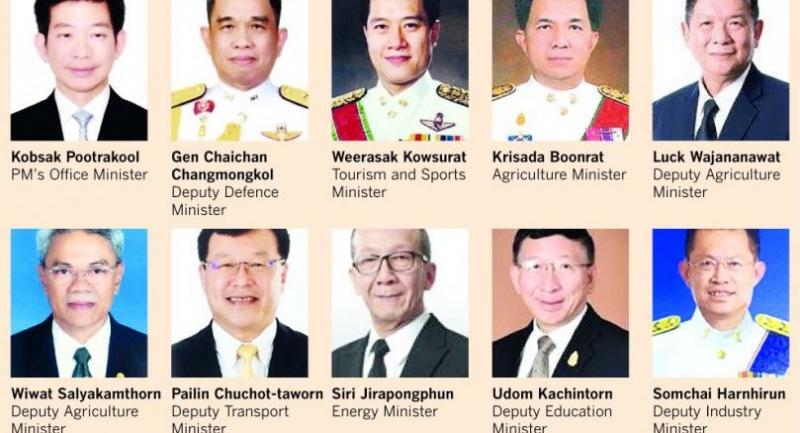Rural economy top priority for govt

AS NEW CABINET SET TO TAKE OFFICE, EXPERTS CALL FOR EFFORTS TO BOOST INVESTMENT AND REDUCE INEQUALITY
THE NEW Prayut Cabinet will face multiple challenges amid the backdrop of key weaknesses, especially the lack of effective ministerial coordination, a sluggish rural economy and rising income inequality, according to academics and business leaders.
Responding to the latest Cabinet reshuffle, Nipon Poapongsakorn, a distinguished scholar at the Thailand Development Research Institute, yesterday urged the new Cabinet to patch up its weakest link – lack of coordination between national security and economic policies.
“There is no good coordination of security and economic policies, and this will result in a negative impact on small businesses and people’s living standards,” said Nipon.
He pointed to how previous Cabinets had used harsh measures to deal with migrant labour on security grounds without taking into account the impact of their actions on the economy and businesses. Another example was the poor management of labour in fishing industries, which resulted in a labour shortage for small fishing operators. Next were the government’s actions to manage street vendors, which hurt the incomes of grassroots citizens. Also, the Education Ministry is implementing research and development policies that do not take into account relevant economic issues.
“Each minister in the past took his or her own way, so in order to solve it Prime Minister General Prayut Chan-o-cha has to coordinate their tasks,” Nipon suggested.
Ministers at the Labour and Education ministries have to work closely with the economic ministers, he added.

“The export recovery may drive Thai economic growth from 3.5 to 4 per cent, but average growth in neighbouring countries is 6-7 per cent,” he said. He pointed to Malaysia, saying the country has a smaller labour force but still its economy grew 6.2 per cent in the third quarter compared to Thailand’s 4.3 per cent.
Regarding the new team of ministers at the Agriculture and Cooperatives Ministry, Nipon said he did not think they could succeed in increasing the price of farm products such as rice and rubber, as the global market decides the price level of those products. He said the former agricuture minister had worked hard but PM Prayut had appointed new ministers only to appease people who were complaining about low price of farm products.
Kalin Sarasin, chairman of the Thai Chamber of Commerce and Board of Trade of Thailand, said the private sector considered many new faces in the Cabinet as capable. However, the new Cabinet has to speed up its implementation of economic policies, like investment in infrastructure projects, pushing the Eastern Economic Corridor (EEC), expanding broadband Internet coverage and promoting the economy at community level.
Stanley Kang, chairman of the Joint Foreign Chambers of Commerce in Thailand, shared similar views, saying the government had talked and advertised a lot about the EEC but laws and regulations were not yet in place. “As Deputy Prime Minister Somkid Jatusripitak remains in the Cabinet, we expect them to follow the same policy, but ministers have to hurry up with investments in infrastructure projects,” said Kang. He expected the new team of ministers at the Agriculture and Cooperatives Ministry could improve the rural economy. Kang also voiced concerns over the recent strengthening of the baht in comparison with regional currencies, which could adversely impact Thai exports.
Kobsidthi Silpachai, head of Capital Markets Research at Kasikornbank, said that he wanted the new Cabinet to carry out tax reforms in order to address the issue of inequality of income. He said high tax rates for high-income people led to brain drain while a high tax rate on durable goods imposes a burden on grassroots and middle-income groups, who borrow money to pay for the goods. He also called for prioritisation of reform in education with a focus on quality. The issue of corruption also needs to be addressed, he said.
“We need to seriously deal with corruption, or else much of the allocated budget will be wasted on bogus projects that do society little good,” he added.
Regarding economic portfolios, Deputy PM Somkid Jatusripitak appears to have further consolidated his role in managing the economy to win more support from the grassroots population ahead of the upcoming general election.
As the economic growth rate rose to an annualised 4.3 per cent in the third quarter of this year, the highest in 18 quarters, the new Prayut Cabinet is expected to push for more public-private sector cooperation to uplift small enterprises in rural areas. Local government budgets amounting to billions of baht will likely be used to drive a new round of growth.
